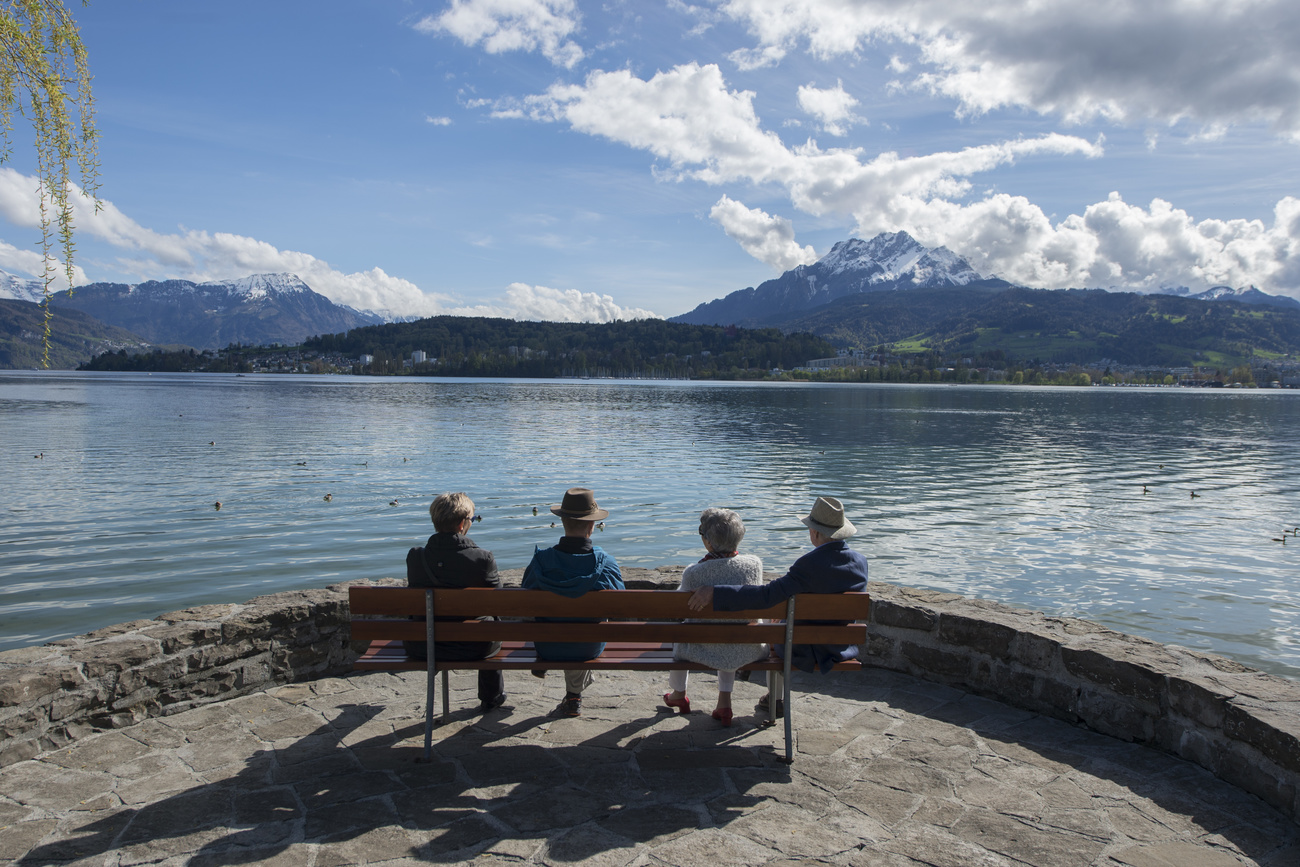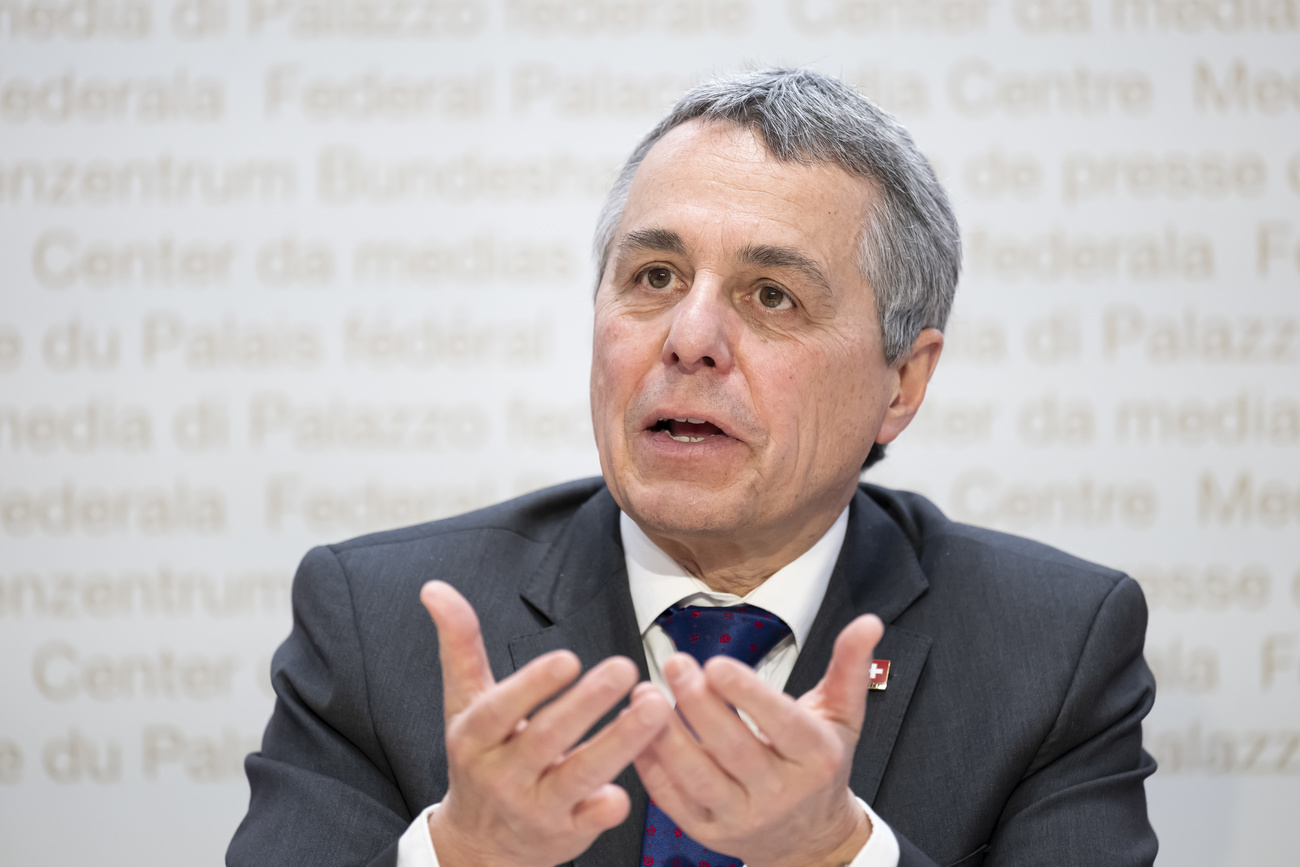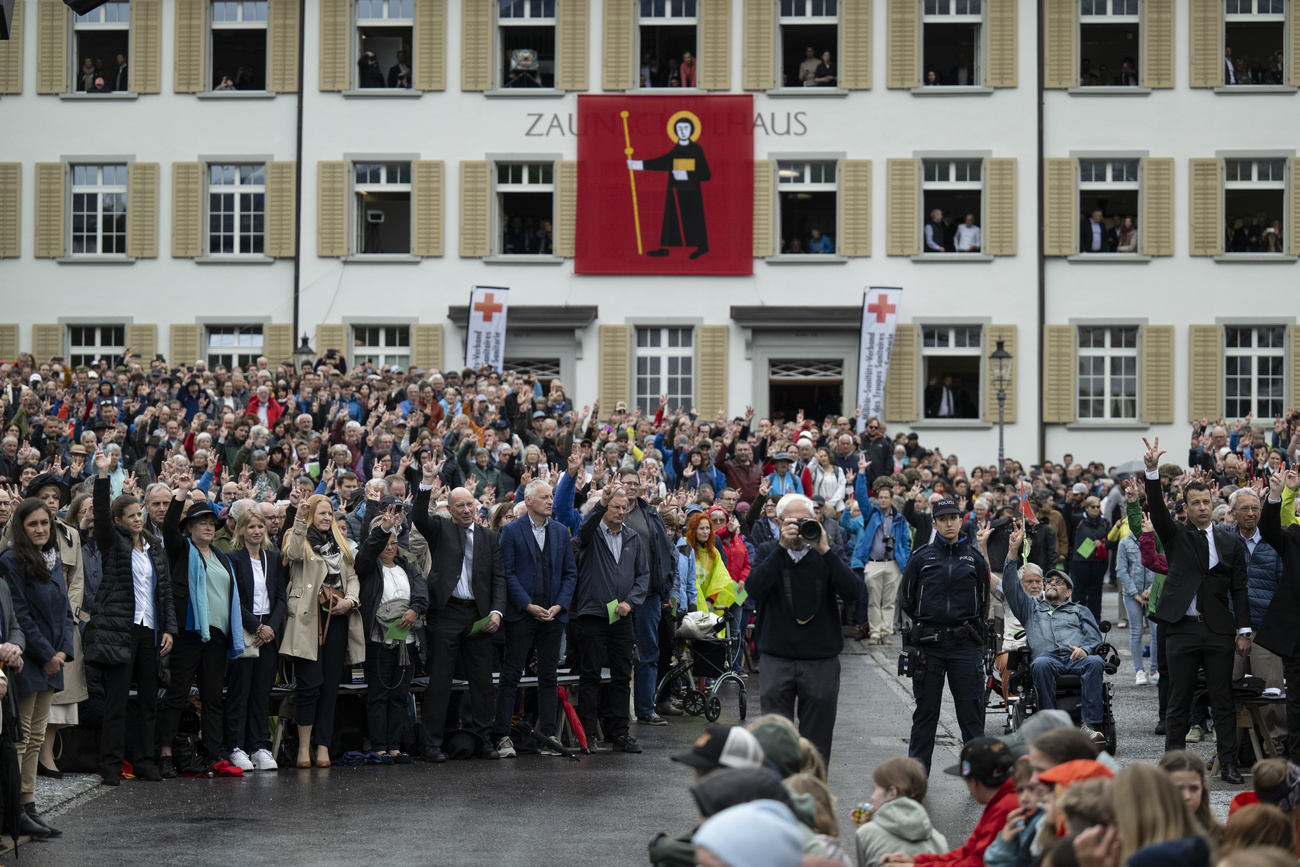

Switzerland Today
Dear Swiss Abroad,
My retirement is still a long way off. I don’t yet know how I’ll have my pension fund savings paid out.
In Switzerland, however, more and more retirees are opting for a lump sum rather than a pension.
Also in the news: if you're registered to vote as a Swiss Abroad in the Glarus electoral register, you may soon also be able to vote for Senate representatives. The Glarus cantonal assembly, the Landsgemeinde, will decide this on Sunday.
Kind regards

More and more Swiss retirees are opting for a lump-sum payout from their pension fund instead of a monthly pension. A new study sheds light on this trend.
For a long time, most retirees chose a lifelong pension from their pension fund – the standard option. But today, more pensioners are selecting a lump-sum withdrawal or a mix of both. In fact, the number opting for a pure lump sum now exceeds those who choose only a pension.
Swiss media are taking a closer look at this shift. The federal government’s 2023 pension statistics, published in November, already noted a continued rise in lump-sum withdrawals. A new analysis by VZ VermögensZentrum, a financial services firm based in Zug, confirms this trend.
According to VZ, the main reason is the declining conversion rates used to calculate pensions – resulting in lower payouts compared to previous years. Tax benefits are a less decisive factor. A study by insurer AXA, cited by VZ, finds that tax is a key consideration only for the wealthy. Research by the University of St Gallen supports this.
“The timing of the publication was probably no coincidence,” writes Swiss public broadcaster, SRF. Public consultation on abolishing tax privileges ends soon, and the financial industry has a clear interest in maintaining them. VZ is not entirely neutral – consulting firms benefit when retirees opt for lump-sum payouts.

Foreign Minister Ignazio Cassis has made a surprise move: standing up to his own party colleagues on European policy – and defending his political legacy.
The decision to support an optional referendum marks a break with traditional alliances. For the first time in a long while Cassis is taking a proactive stance on EU relations. Contrary to the wishes of his Radical-Liberal Party colleague Karin Keller-Sutter and the Swiss People’s Party, he supports a public vote on the new EU treaties, a highly symbolic move, according to CH Media. It would allow voters to decide on the agreements without needing a majority of cantons.
Long criticised as hesitant, Cassis is now making a comeback, says CH Media. After years of cautious diplomacy, he’s demonstrating resolve and presenting a clear position. The era of fence-sitting is over.
Observers believe this move is also about his legacy. Cassis is expected to step down at the end of the parliamentary term and wants to leave more than just meeting minutes behind. These new bilateral agreements may become his signature achievement on European policy.

In canton Bern, what is normally a quiet election for heads of local administrations has sparked controversy: a far-right party’s involvement has prompted public outcry.
Upcoming elections on May 18 for the positions of “Regierungsstatthalterämter”, officials who act as a link between the canton and municipality, should have been a subdued affair. However one far right-wing group which has candidates on the ballot has made headlines.
The “Rassemblement romand patriote” (Gathering of French-speaking patriots) (RRP), plans to run candidates in the Bernese Jura and Biel/Bienne. But leaked WhatsApp messages containing racist, anti-Semitic and misogynistic content have caused a scandal.
Although 18-year-old RRP candidate Loïc Besançon has apologised, the fallout continues. Anti-fascist groups are threatening to release further chat messages, and some are calling for the party to be banned.
The RRP’s manifesto is also stirring backlash: it advocates for labour camps instead of prisons, denies recognition of trans identities and proposes immigration only for elites. In response, the otherwise uneventful governor elections have become a flashpoint for political tension.

Glarus votes on Sunday – and Swiss Abroad voters could gain a new political right.
On the first Sunday in May, canton Glarus holds its traditional open-air assembly, the Landsgemeinde – one of only two cantons (along with Appenzell Inner Rhodes) to still practise this direct form of democracy. Citizens gather in person to vote on laws and public spending.
This year’s agenda is especially long, with votes on issues ranging from public transport timetables to equal access to public education.
But one item will be of special interest to you, dear Swiss Abroad: a vote on whether the 1,052 Swiss Abroad registered in Glarus should be allowed to vote for Senate representatives. Currently, Swiss Abroad may vote for the Senate in 12 cantons, including Bern, Zurich, Geneva and Ticino.
Translated from German using DeepL/amva/ts

In compliance with the JTI standards
More: SWI swissinfo.ch certified by the Journalism Trust Initiative

























